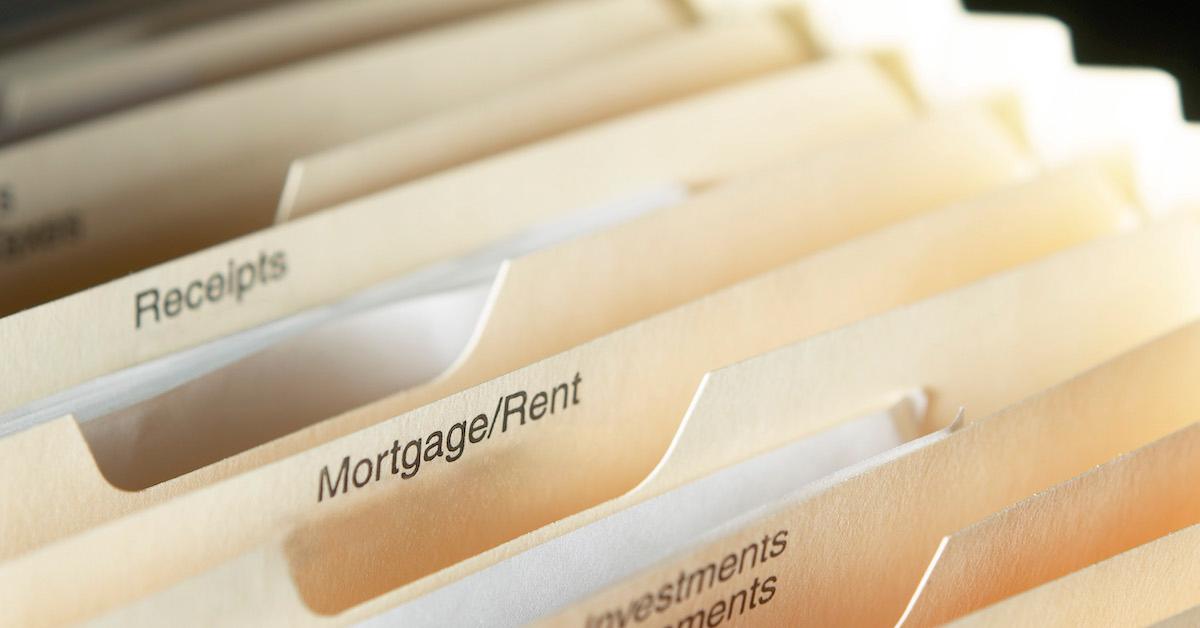Do You Have Student Loan Debt? Tips for Getting Mortgage Approval
Knowing how student loan debt affects getting a mortgage is a crucial aspect for prospective homebuyers. Can student loan debt affect getting a mortgage?
Feb. 2 2022, Published 8:40 a.m. ET

Woman reviews paperwork on the floor
Shopping for mortgage rates and getting approved can be a difficult task. When you add on student loan debt, it gets even harder. How does student loan debt affect a potential homebuyer getting a mortgage?
In 2020, the Federal Reserve reported that for every 10 percent held in student loans, homeownership odds decrease by 1 percent–2 percent within the first five years after graduation.

Dean handing college grad their degree
Student loans affect saving for a down payment.
Saving for a down payment can be especially difficult when dealing with student loan debt. In general, when buying a home, a potential homebuyer should have 20 percent of the home’s cost saved for a down payment. Although saving for a down payment with student loan debt can be challenging, there are ways around it.
Creating a budget can help you avoid overspending. When lenders are considering whether to approve a mortgage loan, they monitor your spending habits, in particular, large purchases. So, getting your spending under control is important. A high-yield savings account is also an option if you have student loan debt. The account allows you to deposit a specific amount every month.
In a high-yield savings account, the money earns interest as the total amount grows, which takes away some of the pressure of trying to save for a down payment. If you receive additional money like tax refunds, raises, or bonuses at work, you should put the money into different accounts that are separate from day-to-day expenses.

Accordian folder with mortgage, investments, and receipts
How do mortgage rates and the debt-to-income ratio work?
Student loan debt can affect your mortgage rate by lowering your credit score. Making on-time student loan payments can boost your credit score, while missing payments can lower your score. According to a Federal Reserve study, 17 percent of adults are behind on their student loan payments.
Missing loan payments are reported on a person’s score regardless of how frequent or infrequent they are, which can make you look like a risky candidate. Payment history accounts for 35 percent of your total credit score. If student loan debt is the only debt you're carrying, some lenders might still be open to working with you. Paying off student loans first can reduce your debt-to-income ratio, which increases your odds of getting a favorable rate.
According to Forbes, the desired debt-to-income ratio is 43 percent or less. This means that total debt payments aren't higher than 43 percent of your income. If the ratio is higher than 43 percent, you will have lower approval odds when applying for a mortgage. A favorable debt-to-income ratio is 28 percent. If an FHA loan is needed to purchase the home, 31 percent is sometimes accepted.

Woman managing her finances
First-time homebuyers with student loan debt have options.
If you have student loan debt, homeownership is still possible. Many states have created homeownership programs that are designed to make it easier for first-time homebuyers to purchase a home. For example, St. Clair County in Michigan has a scholarship that awards $15,000 for loan repayment for first-time homebuyers. In order to apply, the person must have a degree (two-year or four-year) in science, technology, engineering, or math.
Maine offers a state income tax credit for up to the amount of student loan repayments as long as the candidate lives in and works within the state. Other states have also student loan assistance for first-time homebuyers.
